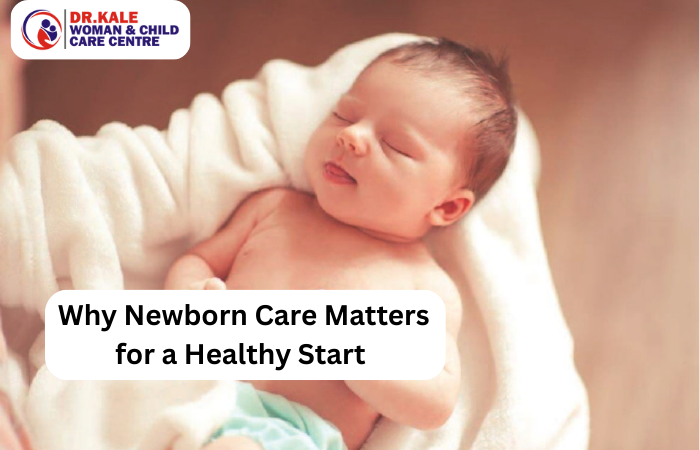The arrival of a newborn is a life-changing event for every family. From the first cry to the first smile, every moment is precious and unforgettable. While these milestones bring joy, they also bring responsibility. A newborn’s first few weeks and months are critical in shaping their health, growth, and development.
This is why newborn care matters. Proper care in the early stages of life not only protects babies from illness but also lays the foundation for lifelong health. As a pediatrician in Moshi, I have seen how timely and appropriate newborn care helps prevent complications, reassures parents, and gives every child the healthy start they deserve.
What is Newborn Care?
Newborn care refers to the comprehensive medical, nutritional, and emotional support provided to babies in their first 28 days of life. This period, often called the neonatal period, is when babies are most vulnerable and require extra attention.
It includes:
- Monitoring growth and development
- Ensuring proper feeding and nutrition
- Protecting against infections
- Vaccinations and preventive care
- Guiding parents on safe practices and bonding
Why Newborn Care is So Important
- Early Detection of Health Issues
Newborn check-ups allow pediatricians to identify and address conditions such as jaundice, feeding difficulties, congenital disorders, or breathing problems early on. Timely intervention prevents complications and ensures better outcomes. - Building Immunity Through Vaccination
Immunization is a vital part of newborn care. Vaccines protect babies from life-threatening diseases like tuberculosis, hepatitis B, and polio. Following the recommended vaccination schedule ensures lifelong protection. - Nutrition for Growth and Development
Breastfeeding is the gold standard for newborn nutrition. It provides the perfect balance of nutrients, strengthens immunity, and creates a deep emotional bond between mother and baby. Newborn care also helps mothers with lactation guidance and addresses feeding challenges. - Emotional and Physical Bonding
Skin-to-skin contact, gentle handling, and safe sleep practices are important aspects of newborn care. They build emotional security, regulate the baby’s temperature, and support brain development. - Preventing Infections
Newborns have delicate immune systems. Proper hygiene, hand washing, and timely check-ups are crucial in preventing infections that can escalate quickly in infants.
Common Challenges in Newborn Care
Even healthy babies may face certain challenges in their early days, such as:
- Jaundice – A common condition caused by high bilirubin levels, usually manageable with proper care.
- Feeding Difficulties – Issues like poor latch or low milk supply need early support.
- Colic or Digestive Issues – Many babies experience tummy troubles that can cause distress.
- Low Birth Weight or Prematurity – Babies born early or underweight need specialized care to thrive.
Prompt consultation with a pediatrician ensures these challenges are addressed without delay.
The Role of Parents in Newborn Care
Parents are the primary caregivers and play a central role in ensuring a baby’s healthy start. Important practices include:
- Following the baby’s vaccination schedule
- Maintaining hygiene during feeding and diaper changes
- Ensuring adequate sleep and safe sleeping positions
- Recognizing warning signs such as persistent fever, refusal to feed, or unusual lethargy
- Attending regular pediatric check-ups
The Role of a Pediatrician
A pediatrician guides families through the newborn phase, providing reassurance and expertise. At Dr. Kale Women & Child Care Centre, Moshi, we focus on:
- Routine newborn health checks
- Growth monitoring using WHO growth charts
- Counseling for breastfeeding and nutrition
- Early screening for congenital issues
- Emergency care when needed
By working closely with parents, pediatricians ensure newborns receive both medical and emotional support for a strong start.
Why Choose Early Pediatric Consultation?
- Peace of Mind – Parents feel reassured knowing their baby’s health is closely monitored.
- Personalized Guidance – Every baby is unique, and newborn care plans can be customized.
- Foundation for Healthy Development – Early check-ups help track growth, brain development, and milestones.
Building the Foundation for a Healthy Life
The first days of a baby’s life set the foundation for a lifetime of health. Proper newborn care ensures safety, nutrition, immunity, and emotional well-being. As parents, investing in early care means giving your child the healthiest possible start.
At Dr. Kale Women & Child Care Centre, Moshi, under the guidance of Dr. Mandar Kale – Pediatrician in Moshi, we are dedicated to providing comprehensive newborn care that nurtures both babies and parents through this delicate journey.
Because every child deserves not just a beginning, but a healthy beginning.
Frequently Asked Questions (FAQs)
- How often should I take my newborn to the doctor?
In the first month, newborns usually require weekly or biweekly visits, followed by monthly check-ups as recommended by your pediatrician. - Is breastfeeding enough for my newborn?
Yes. Exclusive breastfeeding for the first six months is ideal, as it provides complete nutrition and immunity. In rare cases, supplementation may be needed under medical guidance. - What vaccinations are necessary for newborns?
Vaccines for BCG, hepatitis B, and polio are usually given at birth, followed by scheduled doses in the first few weeks. - How can I tell if my baby is feeding well?
Signs include steady weight gain, regular wet diapers, and contentment after feeding. Your pediatrician can help assess feeding if you’re unsure. - What are warning signs I should never ignore in a newborn?
Persistent fever, refusal to feed, extreme sleepiness, rapid breathing, or continuous crying should prompt immediate medical attention.


